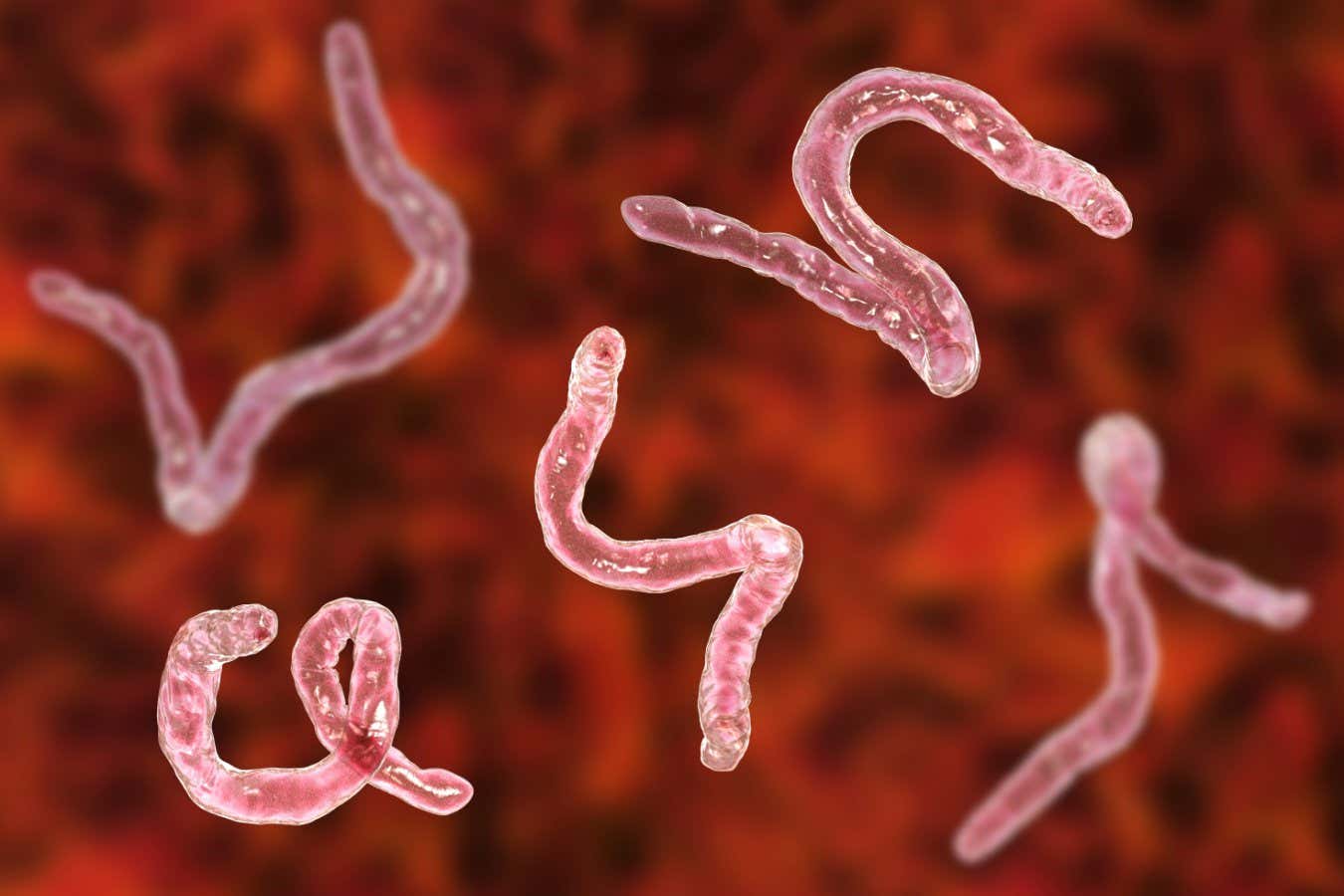Around 25 per cent of the world’s population has intestinal parasite infections – these could hinder the effectiveness of covid-19 vaccines, according to research in mice
By Grace Wade
21 August 2024
Ancylostoma duodenale, a hookworm, causes one of the most common intestinal parasite infections in people globally
Kateryna Kon/Shutterstock
Covid-19 vaccines may be less effective in people who have intestinal parasite infections, or roughly a quarter of the world’s population. This is suggested by experiments in mice infected with parasitic worms, who developed significantly weaker immunity after covid-19 vaccines than mice without parasitic infections.
Previous research has shown that people with intestinal parasites have impaired immune responses to some vaccines, such as those for tuberculosis or measles. This is because the parasites suppress processes that vaccines trigger to confer immunity, such as the activation of pathogen-killing cells. Intestinal parasite infections are most prevalent in tropical and subtropical regions and often occur due to limited access to clean water and sanitation.
Read more
Long covid: What we now know about its causes and possible treatments
Advertisement
Scientists haven’t tested whether these pathogens reduce covid-19 vaccine effectiveness. Michael Diamond at Washington University in St. Louis, Missouri, and his colleagues inoculated 16 mice with a covid-19 mRNA vaccine, half of which had been infected 12 days before with an intestinal parasite that only occurs in rodents. They gave each mouse a booster shot three weeks after the first shot.
About two weeks after the booster dose, the researchers analysed the animals’ spleens to measure the concentrations of CD8+ T cells – a special type of white blood cell important for clearing other cells infected by the SARS-CoV-2 virus. On average, the spleens of mice with intestinal parasites had roughly half the number of these cells as those without parasites, suggesting an impaired immune response to the vaccine.
The researchers repeated this vaccine process in a separate group of 20 mice – half of which had been infected with intestinal parasites – and exposed them to a highly infectious omicron subvariant of the SARS-CoV-2 virus. Five days later, vaccinated rodents with intestinal parasites had about 20 per cent more of the virus in their lungs, on average, than those without them.
